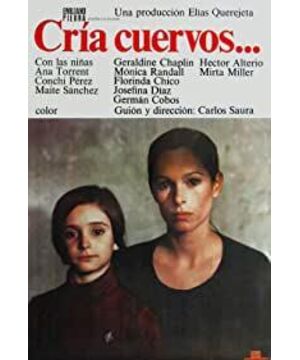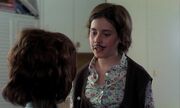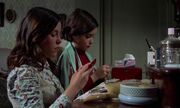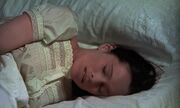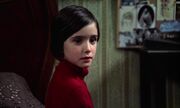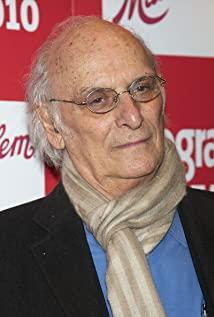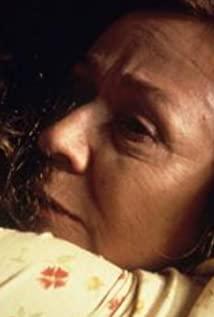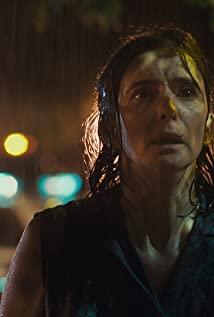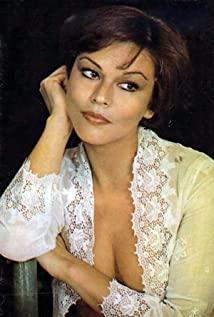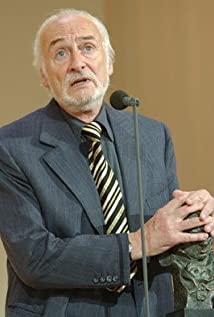From the time I was young, I have been a person who likes to think about things. It can be said that my mind is always turning. This is not a problem at first, but as the age grows, as the number of novels, TVs and movies that you are exposed to increases, you can't help but start to worry about whether your brain is normal. After all, in novels and dramas, whenever characters start When insane, talking to yourself and thinking about yourself are always the first symptoms. Although I was not stupid enough to say what I was thinking about, the dialogue and the degree of divergence of my thoughts seemed to be very close to the so-called "lunatics" on film and television programs.
When this concern began to emerge, I was in high school. In order to confirm whether I was normal, I took the initiative to approach the classmate with the best academic performance in the class. All his minds were in learning, with simple thinking and personality. She is also cheerful. All in all, I felt that she was enough to become a "normal" model in all aspects. So I gathered up the courage and asked her privately if she had ever talked to herself in her mind? She thought about it very seriously, and then said very seriously that once. After that, she described in great detail what kind of situation it was. Of course, I just forced a composure, but in fact I didn't listen to a word. After all, I might be really crazy! !
After a long time, I never asked others the same question again. After all, although I may be a neurotic, I am not a fool after all, and I will not declare everywhere that I have a problem with my brain. It was not until later when I fell in love that I asked similar questions. The first person I fell in love with was a taciturn person, often silent for a while. When I asked him what he was thinking several times, he always said nothing. Once I even got angry about it and said that when you didn't say anything, did my mind go blank? And he actually swore to the sky, it was really blank...At that time, the shock in my heart could not be described in words. It turns out that under normal circumstances, my mind should be blank, but my mind never stops for a moment. It seems that I am not only sick, but also very sick.
It is time to talk about the second love when you muster up the courage to ask others the same question again. Once the other party was in a daze, I quickly asked him what he was thinking about. At first he said that he didn’t think about anything, but when he saw me showing a serious and about to be angry look, he finally confessed. He said he was looking at the closet at the time. The door door, so I first thought that this door door was really ugly, and then thought that it was a cheap wardrobe, and then thought of changing to a better wardrobe in the future, and then started thinking about what kind of wardrobe to buy. After saying this, he said shyly, thinking things are boring. After I heard it, I quickly asked, would you be "blank in your mind"? He doesn't mean it, he usually just follows what he sees and thinks about it randomly, even though they are all boring thoughts, they are not blank. Phew~ I'm so happy. It turns out that other people's minds are constantly turning. The reason why they said that they didn't think about anything was just embarrassed to let people know that they were thinking about boring things.
After a while, I became a little worried again. This idea in my head, normally speaking, should formally speak to others as "me"? Or is there someone "someone else" talking to me? Or is there no talker or obedient person, but only paragraphs of independent text like articles? My situation is the first. Is it possible that the second or third situation is normal? So I took an opportunity and asked a good friend euphemistically: "Occasionally" I will have "conversations" in my mind. Will you also "occasionally" do this? In this conversation, are you the person who speaks, or are others the person who speaks? This friend said very simply: Yes, usually this content is the person under my training, especially the sales manager XX, I will point to this XX and say, you should be this way, shouldn’t be that way, how do you say You still don’t understand so many times? Are you an idiot... Excited, I am not only normal, but also very normal.
■ Stream of Consciousness
I saw a movie on the weekend, "Raising the Crow" by Spanish director Carlos Shaola. This movie was shot using the stream of consciousness technique, so it reminded me of those ridiculous past events, but this is what I think of " The formation process of the concept of "stream of consciousness".
At the beginning of the twentieth century, American psychologist William James believed that human thinking activities are a continuous "flow" rather than a connection of fragments, so it is called a "stream of consciousness". The French philosopher Henry Bergson proposed that "reality" exists in "continuous fluctuations of consciousness" and advocated that characters should be portrayed in accordance with the flow of their consciousness. Since then, not only has the name "stream of consciousness" been established, but a brand-new writing technique has also been created.
The so-called stream-of-consciousness novel refers to breaking the narrative framework of traditional novels and letting the story unfold with the consciousness of the characters in the novel. In traditional novels, even stories developed in the first-person and sequential manner are presented to the readers after the author’s rational thinking and logical editing. Therefore, the readers see that they are connected by “important fragments”. The resulting story is the emotions and thoughts that have been filtered and processed, rather than a true and complete record of the actions, thoughts and emotions of the characters.
Stream of consciousness novels advocate that "the author should quit the novel" and let the characters directly express his thoughts and consciousness. Therefore, the narrative sequence of stream-of-consciousness novels is no longer laid out in the order of past, present, and future, nor is it connected in accordance with cause and effect, but imitates people's real consciousness operation form. When people act in reality, memories of the past, fantasy about the future, self-reflection, and sudden emotional fluctuations appear in their consciousness from time to time. Therefore, at first glance, stream-of-consciousness novels give people a messy and obscure feeling. However, this is the real reaction and feeling of people in the real world, intertwined with action and consciousness. It is a more real state than the reality that traditional novels try to capture.
Stream of Consciousness novels rose from the 1920s to the 1940s. The main representative writers and works include: French writer Marshall Proust's "Reminiscence of the Water Years" and Irish writer James Joyce's "Reminiscence" Ulysses, "Mrs. Dalloway" by Virginia Woolf, the British writer, and "The Sound and the Fury" by William Faulkner, the American writer. These four people are called the four pillars of stream-of-consciousness novels.
The stream of consciousness creation method entered the film industry in the 1950s. The first film work that adopted the stream of consciousness technique was the Swedish director Ingerman Bergman's "Wild Strawberry" (for those who are interested, please refer to "Pride and Prejudice "'S film review blog), Italian director Fellini's "8 1/2", French new wave director Allen Rena's "Hiroshima Love" (see the blog friend "The God of Bath" film review blog) are also Representative works of stream of consciousness movies.
The greatest contribution of the stream of consciousness technique to literature and movies is to shift the depiction of characters and events from the description of external behavior and reality to the exploration of the inner soul. The creator no longer accommodates the understanding of readers and audiences and edits the narrative. The sequence and content, but to thoroughly enter the inner world of the characters, and faithfully explore the inner changes, psychological activities and thoughts of the characters; the creators no longer criticize the events through dialogue and techniques, but take the characters’ mental journeys one by one. Presenting is left to the reader or audience to experience and judge.
Because people’s consciousness is divergent, they make free-style associations from time to time, and there is no fixed sequence on the time axis. Memories and emotions, reality and fantasy are often intertwined, and pictures and self-monologues also jump out from time to time. All kinds of beautiful, Strange, dark and dirty thoughts are even more truly present in consciousness. Therefore, novels and movies about the stream of consciousness not only give people a sense of confusion and incomprehension, but also often give people a dark and obscure feeling. Feel. Whether you like it or not, the stream of consciousness has established a new creative technique, which is an important style and film technique grafted between modernism and postmodernism.
■ "Raising Crows"
"Raising Crows" is a work directed by Spanish director Carlos Shaola in 1976. It won the Cannes Film Festival Jury Prize, the Spanish Film Critics Association's Best Director Award, and the French Film Critics Association's Best Foreign Language Film prize. Carlos Saola is the leader of the new Spanish film wave. He grew up in the dictatorship of Francisco-Franco. Most of his works before 1979 are full of symbols and metaphors in order to avoid the authorities. Strict review system to reflect the social conditions at that time. "Raising Crows" is the work shot at this stage.
"Raising the Crow" is a suspense film. The protagonist is an eight-year-old girl Anna. At the beginning of the film, Anna's father died suddenly on the bed. From Anna's next actions, it can be inferred that she drugged her father's cup. Poisoned his father. Then the director used the stream of consciousness technique to unfold the truth of the whole story through Anna's external perspective and internal consciousness, and then revealed how an eight-year-old girl could commit the evil act of killing her father.
Anna's mother is a pianist and she is full of love for Anna. When Anna can't sleep at night, her mother will play the piano for her, kiss her cheek gently, and tell her stories softly to make her fall asleep. Even on the night Anna poisoned her father, her mother smiled at her with tolerance and understanding, and seemed to silently agree with Anna's behavior. But in fact, Anna's mother has long passed away, and she died of pain in bed under the indifference, indifference, and endless affair of her father. And Anna had witnessed all of this. She was standing by her mother's bed, listening to her mother's horrible and resentful calls, but she couldn't help at all. This incident left deep self-blame in Anna's heart.
Is it because of the death and pain of her mother that Anna buried her murderous intentions on her father? Anna actually didn't know. In her inner monologue, she told the source of the poison. It was thrown away by her mother when she was alive. At that time, she asked her if the jar was filled with poison? Mother smiled and said yes. So Anna secretly hid the jar. As for why she wanted to kill her father, she couldn't tell. She just said that maybe she would figure it out in twenty years. She was only eight years old after all. When Anna talked to herself, she was presented as a mother. In Anna's heart, her mother's life never left in her body.
Anna also has an older sister and a younger sister. After the death of her father, her mother's younger sister became the guardian of the three and moved with her grandmother to live with the sisters. The grandmother could neither move nor speak. She sat in a wheelchair all day, looking at the old pictures outside the window or on the wall. Anna saw the other herself jumping off a tall building, so she understood her grandmother's feelings about not wanting to live. Anna secretly told her grandmother that if she wanted to die, she could help. But when Anna read the label on the top of the small jar to her grandmother, her grandmother shook her head helplessly. It said: edible soda. It turned out that the poison Anna thought was just baking soda, and she didn't kill her father at all.
Anna and her family were invited to go to the house of a couple of friends of her aunt for vacation. This couple is also friends of Anna's father, and his father also took Anna, mother and aunt to the couple for vacation. Anna remembered everything at the time, even the clothes she was wearing. That day, everyone walked through the woods together. The aunt and the husband of the couple walked ahead, the father and the wife of the couple walked behind, and the mother walked alone with Anna in the middle, looking back from time to time. Father who fell farther. Later, when she couldn't see the two behind, her mother asked Anna to look back, but Anna saw her father and his wife kissing in the woods. And this wife is the woman who left her father’s room hastily when her father died. The loss of her mother and the ugliness of her father were clearly imprinted in Anna's heart.
Anna couldn't sleep again, but her mother gently walked to her bed and sat down, touching her face lightly, while telling her the bedside story "Little Almond", but her mother suddenly disappeared before Anna fell asleep. So she cried loudly and yelled at her mother. As a result, the aunt ran from her room immediately after hearing the sound, hugged Anna tightly, told her that she had only had a nightmare, and said she wanted to tell her the story of "Little Almond". Anna got angry when she heard it, saying that she hoped her aunt would die, and buried her head deeply under the pillow. Anna hates auntie because she feels that auntie wants to replace her mother's place in the house and in her heart.
Anna decided to kill her aunt, because when she took a pistol from her father and walked into the living room and clamored that it was reserved for her by her father, she saw her aunt hugging and kissing the husband of the couple of friends. When the two found the pistol in Anna's hand, they managed to snatch the gun from her in a panic, and the aunt slapped Anna for it afterwards. So Anna decided to poison her aunt. Although Anna did not want her aunt to replace her mother's position, she still had the weight of her mother invisibly, so her behavior betrayed her and she could not forgive her at all.
Anna added the powder in the small jar to the aunt's milk. Late that night, Anna quietly came to the aunt's room, gently stroked the aunt's head, and took the cup on the side to clean it.
The servant awakened the three the next day and urged everyone to change their clothes and go to school. Not long after, the aunt also came in and helped Anna get her clothes on. After having breakfast happily, the three children walked out of the house, neatly dressed and carrying school bags, and went to school.
■ "Raising Crows" is a Spanish proverb, which means raising tigers and tolerating abuses. In the film, it refers to the eight-year-old Anna who has grown into a wounding crow, even though she did not actually kill her father and aunt. But the darkness and evil in her heart have taken shape, enough to leave the family and go to school and society to do evil.
When the director interprets the film, he did not view what happened to Anna from an objective perspective. Instead, he used the technique of stream of consciousness to follow Anna’s vision and thoughts, with imagination, memory, confession, and inner self. Province, to dig into her inner world, and use the most naked way to present the way and results of a little girl watching and understanding the world:
"When Anna couldn’t sleep, she imagined her mother to accompany herself and relive her mother’s love.
" Mentioned the death of her mother at the dinner table. She recalled the pain and resentment of her mother when she died.
"When the family went on vacation, she monologized in her heart that she had witnessed her father's derailed behavior
during her last vacation. " When she thought she was killing herself When her father died, she calmly analyzed and reviewed her reasons for doing so.
Through Anna's most secret and deepest flow of consciousness, the audience understood how an eight-year-old girl understood and felt the world, and thus buried the dark and evil. The seeds of her: the tragic death of her mother left her with grief and self-blame, making her feel that her life has no value; she believes that her father’s ugly behavior is the source of her mother’s pain, and she feels that she should punish her father for her mother The arrival of the aunt changed everyone’s way of life and created a struggle in Anna’s heart. On the one hand, she felt that she should be loyal to her mother and could not let her aunt replace her mother’s position in her heart, but she felt that her aunt is actually like a mother and cannot behave. Betray yourself.
Although "Applying and Raising Traitors" depicts the process of a person's depression and abnormal psychology through the story of a little girl, it is actually a reflection of Spanish society. At that time, Spain was in a period of dictatorship, and the ugly and suffocating social atmosphere was extremely distorting to the family and human nature. In this atmosphere, people who were originally innocent and ignorant, through witnessing and experiencing cruelty and oppression, gradually formed deformed and evil personalities, and such personalities have spread to society through their families and are further aggravated. The deformity and evil of the whole country.
View more about Cría Cuervos reviews


